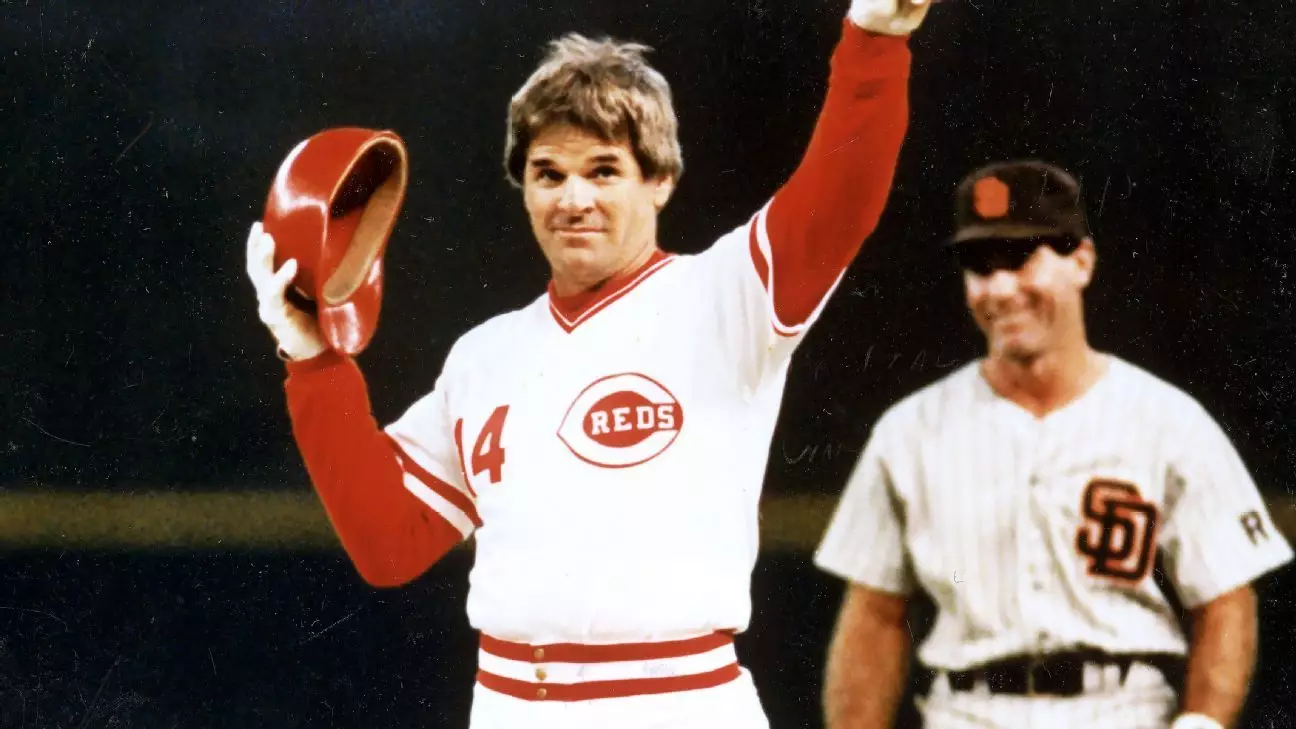Pete Rose, whose name remains synonymous with the phrase “Charlie Hustle,” passed away at the age of 83, as confirmed by the Clark County medical examiner in Nevada. Known for his relentless hustle on the field, Rose’s reputation as the MLB all-time hits leader—with an astonishing 4,256 hits—will forever be celebrated, but his storied career is equally marred by a gambling scandal that led to his ban from the sport. Although he was found deceased by a family member, the coroner’s investigation into the cause of death has not indicated any signs of foul play, as reported by ABC News.
Born in 1941, Rose began his MLB career in 1963 and quickly made a name for himself. Over 24 seasons, he gathered accolades that solidified his status as one of baseball’s greatest players, notable for winning three batting titles and leading the league in hits on seven occasions. His achievement of being a 17-time All-Star and earning the National League MVP award in 1973 is a testament to his skill and determination. Notably, Rose’s pivotal contributions to the Cincinnati Reds’ dominance in the 1970s intertwine with their championships in 1975 and 1976, further establishing his legacy.
Despite this towering record, the cloud of his lifetime ban looms large. The scandal broke in 1989, leading to an MLB investigation. Rose, who was managing the Reds at the time, found himself embroiled in allegations that he had bet on baseball games, including those involving his own team. His vehement denial of these claims ultimately crumbled under the scrutiny of the investigation. Accepting a lifetime ban from MLB commissioner A. Bartlett Giamatti was Rose’s way of hoping to re-enter the sport he loved in the future, but not before serving time in prison for tax evasion.
The complexities of his situation prevent a straightforward interpretation of his legacy. Many baseball purists argue that Rose’s gambling not only undermined the integrity of the game but tainted his historic achievements. This conflict of admiration and condemnation transforms his narrative into a cautionary tale where talent meets moral failings. Even so, debating his Hall of Fame worthiness is an ongoing topic, leaving many fans and analysts divided.
Throughout his career, Pete Rose was a polarizing figure. While his fierce playing style and abundant dedication earned him morbid devotions from Reds fans, others criticized his approach. One of the most notorious incidents occurred during the 1970 All-Star Game, where Rose charged at Cleveland catcher Ray Fosse to score the winning run, an action that many saw as reckless. Though Rose saw this play as a representation of his tenacity, detractors labeled it as a blatant disregard for sportsmanship.
Despite the backlash, many baseball enthusiasts recognized his undeniable talent. Rose’s quest to break Joe DiMaggio’s 56-game hitting streak further captivated the nation, bringing attention back to the game despite his turbulent reputation. Although he tied the National League record for the most consecutive games with hits at 44, his inability to surpass DiMaggio adds to the tapestry of “what ifs” that surround his tumultuous baseball history.
Pete Rose’s life after baseball was anything but serene. His struggle for reinstatement following his ban led to multiple denials—alleging that his refusal to openly admit wrongdoing was a primary reason for the MLB’s lack of leniency. While he ultimately confessed to betting on baseball in his 2004 autobiography, he maintained he never bet against the Reds. This admission came over a decade after his lifetime ban, suggesting a complex relationship with both the game and his own decisions.
Even in 1999, baseball made an exception allowing Rose to participate in a ceremony honoring the All-Century Team. This acknowledgment of his skills happened without full reinstatement, showcasing the inherent contradiction within how the sport views its legends. As tributes pour in following his death, one must confront the duality of Rose’s legacy—a reminder that greatness within a sport may coexist with personal and ethical failures.
Pete Rose’s death prompts renewed conversations about his remarkable career and the faults that shrouded it. As fans juxtapose his astounding achievements against the backdrop of his controversies, they are faced with the challenge of reconciling a remarkable career with the consequences of choices made long ago.


Leave a Reply